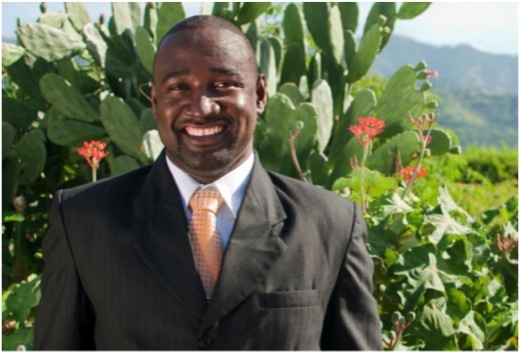By Alexander Britell
Dr Dayton Campbell is the candidate for the North West St Ann seat in Jamaica’s Parliament for the People’s National Party. He is facing off against Othniel Lawrence of the Jamaica Labour Party in the election Dec. 29. A native of St Ann, Campbell is a medical doctor by trade. Campbell was part of the PNP team at the Youth Debate earlier this month. To learn more, CJ Politics talked to Campbell about the campaign, the major issues of the economy and how to tackle the garrison problem in Jamaica.
How has your campaign gone so far?
It’s going well. Even though I’ve had a short time to campaign, we’re strategic in what we’re doing, and we’ve been organizing to give us a good chance of winning on the 29th.
What is the biggest issue in the election for Jamaica?
The biggest issue in Jamaica now is the problem we have right now with unemployment — that is the biggest issue at this point.
What can be done to improve that?
I think we need better management – we need to cut weight, cut corruption, and we need to be more fiscally responsible.
Are there any areas of the Jamaican economy that can help do that?
Certainly – what we have are a lot of areas that we can compete in – in trade, in tourism, in agriculture, in ICT. We have to focus on those areas.
What do you think can be done to improve the tourism sector?
Well, we’re looking at ways in which we can increase arrivals. We’re also looking at health tourism, wellness spas, and those things that are part of the party’s manifesto.
One of Prime Minister Holness’ first acts in office was a call to dismantle garrisons in Jamaica. What do you think about that, and what should be done in that regard?
I agree that we need to dismantle the garrisons. As to the approach, I don’t think a “walk” is anything more than ceremonial. What we need to do is social programmes to get the youngsters involved, and that is how we are able to dismantle them – but certainly not a “walk.” We support the idea of dismantling the garrisons.
What do you believe are the major strengths of your party and its platform in this election?
Some of the major things are the whole concept of equality, of the power of the people and of integrity. In the current administration, corruption has been unprecedented, where persons are misrepresenting the facts and not exactly truthful in what they have said. I think those are some of the things we are strong on. We have a lot of things to do to strengthen our institutions, and to attempt to pierce against corruption – our party has an Integrity Commission for candidates before they can be selected to represent the party.
How do you differ from the JLP on the economy?
So I think we have more strengths – we don’t just think we need to grow the economy in lieu of the living conditions of the people. Some persons might complain that we didn’t grow the economy the way we should have, but the fact of the matter is that we took the conscious decision of a social-economic programme, to decrease poverty and to decrease unemployment. We brought down the debt-to-GDP ratio. We also had a growth in real GDP, and in foreign direct investment. So we were at the stage [in 2007] where we had set a platform for growth, and all of that has now been eroded.
A major portion of the economy is comprised of fuel costs – how much can green energy help the economy?
Certainly, our energy bill is too high. We are determined to move away from our dependence on oil and gas. The party has done some things in regard to how we look at alternatives. We are going back to the table and continuing some of the trends we put in place, plans that weren’t followed up.
We’ve been speaking to candidates about Jamaica’s progress on Caribbean integration. What do you think about that issue?
I don’t think we have done enough. I don’t think we have done enough at all. That is something we certainly need to tap into. If we are able to united as a Caribbean region, I think there’s a strength in numbers, and each country could be able to benefit more from such a programme. It’s something I’m in favour of and that I would support.
